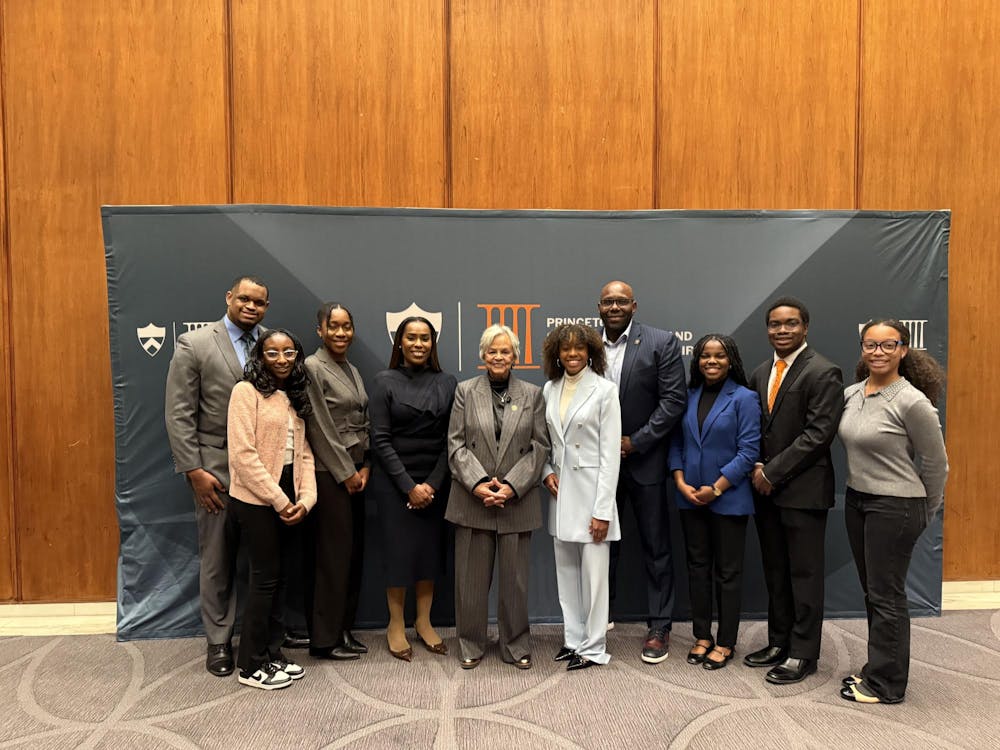As news of the supposed terrorist bombing of a U.S. ship in Yemen on Thursday sent Princetonians racing to their televisions and computers, history professor Jeremy Adelman had a sobering suggestion.
In the wake of the Oklahoma City bombing in 1995, he recalled, many Americans were quick to conclude that the attack was the work of a Middle Eastern terrorist.
"Well, guess what?" Adelman said. "It was a terrorist from the Midwest."
And Adelman was not the only Princetonian to recommend that Americans exercise intellectual restraint in evaluating the bombing.
Hashim Dabbaugh '01, a resident of Saudi Arabia, voiced concerns about the objectivity of the American media. "I believe that everything in the media in the U.S. . . . is a little exaggerated and cast in terms of terrorism and fundamentalism," he said.
Wilson School professor Wolfgang Danspeckgruber also spoke in favor of restrained media coverage. "I feel that in such cases of crisis it's maybe a bit more helpful to restrain the wide-ranging media coverage," he said.
Danspeckgruber noted that restraining media coverage can be an effective method for deterring terrorism — and invoked the success of such policies in Great Britain in the 1970s to make his case.
"I feel, intuitively, that the media hype about all these things," he said, "is contributing to [the acts]. By covering the events so intensely, the media is creating "yet another motive" for potential attackers, he argued.

Danspeckgruber went on to point out that countries such as Great Britain and France have tighter control over their media, whereas it might be more difficult in America to restrain the media on a practical level.
Wilson School professor Aaron Friedberg said some studies show that there have actually been fewer terrorists attacks on the United States in recent years. Nevertheless, some have suggested that terrorism has become a substitute for direct acts of aggression against America.
But Friedberg noted that these attacks are not always attempts to influence American foreign policy directly. "I don't know that the people who carry out these attacks believe that it will affect U.S. policy at all," he said. Rather, he posited, the attacks could instead be mere outbursts of hatred for the United States.
"I don't think this [violent] method of trying to change U.S. policy," Dabbaugh said, "is effective, but it is trying to get a point across."

Near Eastern studies professor Abraham Udovitch agreed. "There are a lot of groups who oppose American policy in the area," he said. "They see in America . . . as a force for evil or things that they don't like."
"I suppose [the attack is] a kind of statement saying we don't want the U.S. . . . in the area," Udovitch added.
"It definitely has an emotional motive to it," Dabbaugh continued. "It's like a kid having a tantrum and trying to get something across." But just because the child is expressing his displeasure through screams and violent outbursts does not mean that his concerns are not valid, Dabbaugh added.
Because of America's military might, terrorist groups have increasingly turned away from American military targets, Danspeckgruber argued. Attacks on so-called "soft targets" — such as the port refueling site in Yemen and the installations of U.S. allies — have increased since the 1950s, he said.
"The U.S. is for better or worse . . . perceived as . . . the most powerful actor in the international system," Danspeckgruber said. And forming alliances with the United States therefore places smaller countries in the direct path of anti-American hostility.
"The principle is that when a group of states is involved together by a military alliance," Danspeckgruber said, "what happens to one state, particularly if it is a powerful member, has ramifications for the other members."
As a result, any controversial action by the United States is likely to heighten the possibility of attacks on what he called "the next-best close ally."
Investigators have not yet determined who is responsible for Friday's bombing of the British embassy in Yemen.
But in June a British military attache in Greece was shot down in the streets by a group protesting American and NATO policy in Kosovo. "Since they couldn't get the American attache, they took him as the next best substitute," Danspeckgruber said.
"If I were head of German, British, Dutch . . . [foreign security] I would definitely [increase] the safety mechanisms," he said.







